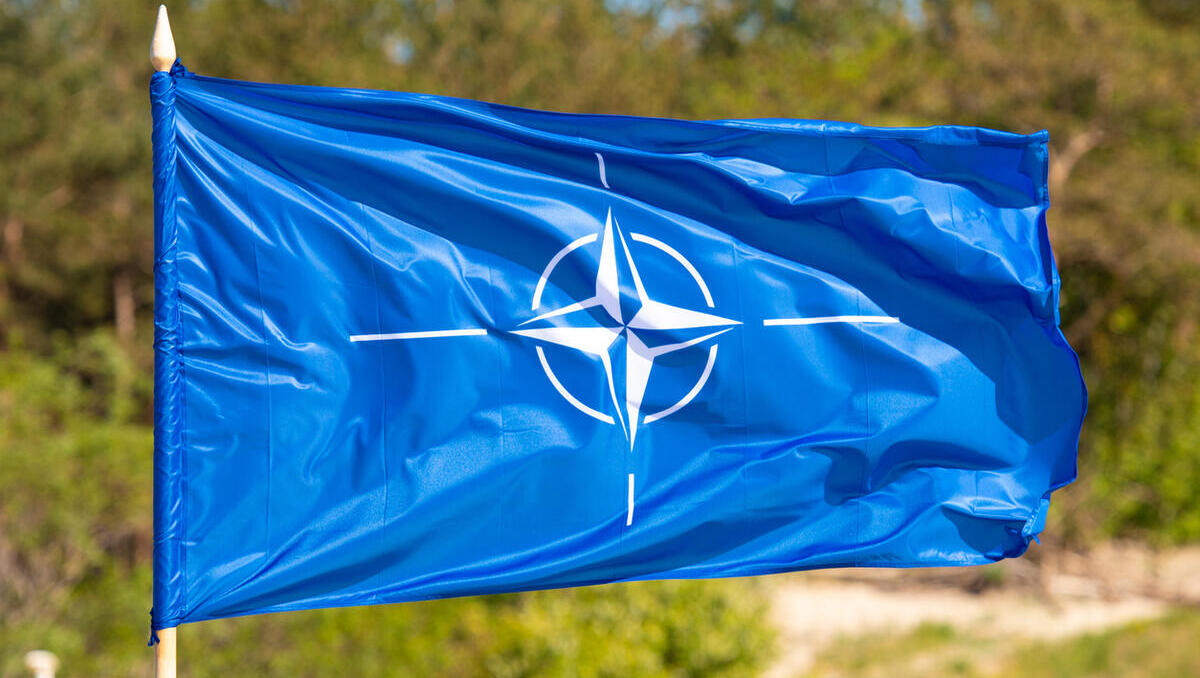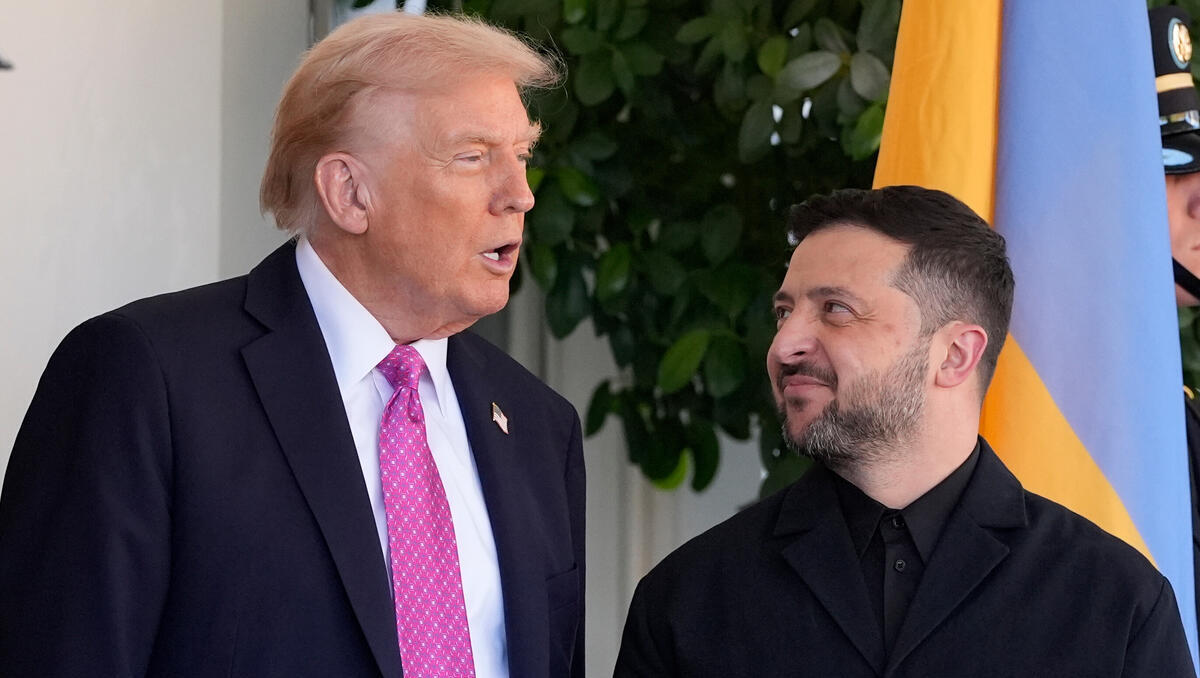Deutsche Wirtschaftsnachrichten: The dollar is the undisputed world reserve currency. How has it developed into it and what factors have contributed to this?
Mark Copelovitch: Dollar dominance is not only due to the economic size and geopolitical power of the US, but also is the long-term legacy of the post-World War II international monetary system, where the dollar’s peg to gold, at $35 per ounce, was the bedrock of the fixed-but-adjustable exchange rate system established at Bretton Woods in 1944. This lasted until 1971, when President Nixon took the US off of gold and ushered in the modern era, in which the world’s richest economies have almost entirely removed capital controls and most of the world’s major currencies float freely in global markets against one another. As the world moved away from metal-based monetary systems and global financial flows increased exponentially from the 1970s onward, the dollar, Euro (and previously, the German Deutsche Mark), yen, and a small number of other currencies (Swiss franc, Canadian and Australian dollars, the Chinese renminbi, etc.) have emerged as the major international reserve currencies.
The dollar’s persistent dominance today is due primarily to three key factors: the economic and geopolitical size and influence of the US in the international system and global economy; the unprecedented size, depth, and liquidity of US financial markets; and the Federal Reserve’s central role as the de facto international lender of last resort during global financial crises.
Deutsche Wirtschaftsnachrichten: What significance does the dollar have for the political, geopolitical and military power of the USA?
Mark Copelovitch: In my view, dollar dominance is the foundation of US power in the international system. Ultimately, money is power, as it determines the fiscal capacity of a country to invest in the military, infrastructure, public goods, education, and social welfare programs. The failure to fully grasp this connection between the dollar’s dominance in global finance and American power/hegemony is a key reason why we have seen predictions of America’s looming decline in every decade since the 1960s, first with the USSR, then with Japan, and now with China. The persistent dominance of the dollar in international finance, however, is the central reason why these predictions keep failing to come true. Certainly, the US faces serious political problems at home, and certainly China has become a far more important challenger in the global economy and world affairs. But the structural financial dominance of the dollar remains unchallenged, and this is the single most important factor shaping the geopolitical power structure of the international system.
Deutsche Wirtschaftsnachrichten: Nevertheless, there is repeated talk of a transition from a unipolar to a multipolar world order. China is described as the great challenger to the USA - rightly so?
Mark Copelovitch: China’s economic and geopolitical rise is one of the central stories of international relations over the last forty years. China now rivals the US as the world’s leading trade power, it plays an ever-greater role in global governance and international institutions, and it certainly makes sense to think about it as (along with the US and the EU) one of the three “great powers” in today’s international system. However, China remains a small player – relative to the US and EU – in global finance, and the RMB remains only a small player among the world’s international reserve currencies alongside the Canadian dollar, British pound, Swiss franc, and other “minor” reserve currencies. Moreover, China continues to impose significant capital controls restricting cross-border financial flows, and the RMB is still not a fully convertible currency. Finally, China’s private financial markets are tiny, in comparison to those of the US, UK, EU, and other Western financial powers.
It is certainly possible to envision a world in which the RMB began to rival the Euro as the world’s #2 international currency in the years ahead. But this would require China to reverse nearly all of its current economic and foreign policy positions under Xi Jinping: removing capital controls, making the RMB fully convertible, developing large scale private financial markets, allowing a substantial RMB appreciation, moving away from running very large current account surpluses, reversing its aggressive “Wolf Warrior diplomacy” foreign policy positions vis-à-vis Taiwan and other countries in the South China Sea area, and moving toward greater democracy and transparency at home. In my view, none of these is likely to happen anytime soon. Ultimately, as long as China remains a small player in global finance, and the RMB remains but one of many “minor” global reserve currencies, there simply will not be major structural change in the global economy, or a shift away from the structural financial dominance of the US.
Deutsche Wirtschaftsnachrichten: China's GDP has overtaken that of the USA in terms of purchasing power parity and China is the world's first trading power. The USA, on the other hand, is undisputedly the biggest financial power. How important is economic power compared to financial power when it comes to exercising global hegemony?
Mark Copelovitch: I would question this distinction between “economic” power and “financial” power. Financial power is economic power. I think what we’re talking about here is the importance of a country in international trade versus its importance in global finance. China, the US, and the EU are the world’s three primary trading powers. China is the world’s largest exporter, but it is heavily dependent on exports to the US and EU – and those two actors running persistent trade deficits – for maintaining its own large trade/current account surpluses. In this sense, China’s leverage over the US or EU is limited. Ultimately, all three actors need each other, and the idea that one “side” can “win” a global trade war is deeply misleading. The costs of decoupling, for both China and the US/EU, would be so high that we are unlikely to see this happening on a large scale in the years ahead. Not only would it devastate the manufactured export-led economies of China and Germany, but it would massively raise the cost of consumer goods and imported intermediate inputs in the United States, hurting both consumers and businesses.
As I noted above, when it comes to hegemony, financial power is ultimately more important, since it directly determines the ability of governments to finance both domestic and military spending. Financial power, as we’ve seen with US/G7 sanctions on Russia, is also more central to the exercise of global hegemony. The sanctions are not “airtight,” and they are not a substitute for military aid or force, but they have massively weakened Russia’s economy and isolated it from the global economy. China simply lacks any comparable capability to use its size in world trade to exert hegemony/influence over other countries in the same that the US/EU/G7 are able to do so because of their financial dominance.
Deutsche Wirtschaftsnachrichten: What role does the USA's national debt play in these considerations? Or to put it another way: can the USA take on unlimited debt in view of its financial power?
Mark Copelovitch: There is surely some level of debt, for the US, that is actually unsustainable. But we are nowhere near that threshold, given the exponential growth (nearly 40-fold increase) in global capital flows over the last five decades, while US debt/GDP has only doubled since the 1990s. Yes, US debt/GDP is over 100%, but this is an arbitrary number, and so-called “deficit hawks” have been arguing incorrectly that US debt is unsustainable since it was less than half of that three decades ago. Moreover, Japan – issuer of the number-three international reserve currency – has a debt/GDP ratio of ~250% & has easily sustained levels over 100% since the 1990s. Global demand for safe assets is simply so large in the modern global financial system that there is no urgent pressure on the US government to balance the budget or pay down its debt, and there is not going to be anytime soon. Furthermore, about two-thirds of US debt is held either by the Federal Reserve or domestic investors, so we effectively owe the debt to ourselves. And taking a longer-term view, global interest rates have been falling – with the notable exception of the era of the oil and Volcker Shocks in the 1970s and 1980s – for centuries. In this world of unprecedentedly large global capital flows, historically low world interest rates, and the unchallenged dominance of the US dollar as the dominant international reserve currency, the idea that the US faces strong restrictions on its ability to sustain debt and deficits is simply not true.
This doesn’t mean that there are no costs to high debt. Sustaining large debt and deficits involves tradeoffs, & it may result in higher inflation or interest rates down the line. But the idea that there is a hard budget constraint facing the US government, or that we are not going to be able to borrow (or spend) in effectively unlimited quantities in the decades ahead, is a category mistake that rests on the false application of the household analogy. It is an expression of entirely political preferences for budget cuts and deficit reduction over other policy goals, rather than a description of economic realities.
Deutsche Wirtschaftsnachrichten: The US has repeatedly used the dollar as a weapon, most recently in the sanctions against Russia. Won't this lead to more and more countries trying to break out of the dollar's dominance? Would the "dollar“ as a sword become blunt over time?
Mark Copelovitch: Perhaps, but the question is where would countries go as an alternative to the dollar? A serious outside option simply doesn’t exist and will not anytime soon. It is one thing for demand for alternatives to the dollar to increase because the US is weaponizing the dollar via sanctions and other policies. It is entirely another for actual alternatives to be supplied. And there are tradeoffs in everything. If, for example, China set up an alternative global payments system and allowed more countries to settle bilateral trade in RMB, then this would place massive upward pressure on the RMB to appreciate, given sharp surges in global demand to hold the currency. This, in turn, would have a devastating effect on Chinese manufactured exporters’ competitiveness and would directly undermine the economic growth model that has been the bedrock of China’s development strategy for decades. Moreover, the US and EU still remain massive global economic powers, and most countries want/need to hold dollars and euros in order to trade and invest with both actors. So there are both economic and political limits at work here, there are no obvious large-scale outside options to the dollar, and the costs to China or other countries of developing them – even if they would like to have them – are significant.
Deutsche Wirtschaftsnachrichten: Alongside the USA and China, the EU is also an important economic area. Nevertheless, the euro is relatively insignificant compared to the dollar. Why?
Mark Copelovitch: The euro is not a competitor to the dollar, but it is unquestionably the world’s second-most important international currency, and there is no serious challenger to this position either. But the eurozone remains a currency without a country, given the lack of political and fiscal union in the EU. Moreover, the national fragmentation and relatively small size (compared to the US) of European financial markets means that there simply are not enough “safe assets” denominated in euros for international investors to hold. And finally, the ECB plays only a minor role as international lender of last resort relative to the Federal Reserve. Until and unless these things change, the euro simply will not be a viable competitor to the dollar. And the political support – within Germany, within other eurozone countries, or at the European level – simply does not exist at the moment (and likely will not for years, if ever) for Europe to make the policy changes necessary for this to change.
Deutsche Wirtschaftsnachrichten: Do you think the euro will survive in the long term? Or is it doomed to fail in view of the political realities in the EU?
Mark Copelovitch: I think the euro will survive in some form, but I am not entirely confident that all of its current members will remain in the long term. In many ways, the euro crisis never ended: Greece remains mired in a Great Depression, with GDP far below what it was prior to the Global Financial Crisis, and the structural imbalances and debt overhangs that existed in 1999 and a decade ago still remain today. Moreover, policies such as the Schuldenbremse at home and the Stability and Growth Pact at the European level have locked in those imbalances and reinforced the idea that budget surpluses and fiscal austerity for everyone are responsible policies. The problem with this is that not everyone can run balanced budgets and surpluses, and permanent austerity in southern Europe is politically unsustainable. So, while I believe the euro will continue to survive, and the eurozone will “muddle through” from one crisis to the next, I do worry, in the long-term, that some countries such as Greece or Italy might eventually decide that the political and economic costs of membership outweigh the benefits. And if one or two eurozone countries do leave, then what was established as a “permanent and irrevocable” monetary union will become nothing more than an optional fixed exchange rate system, and then its survival could come into question. This is why it was so irresponsible for European officials to speak about “Grexit” – something for which there was no mechanism in the EMU treaty and which is not meant to be an option in the monetary union, regardless of whether a country violates the SGP “rules” of EMU – in 2015.
Deutsche Wirtschaftsnachrichten: And finally, do you see any alternatives to FIAT money? Such as gold-backed or cryptocurrencies
Mark Copelovitch: No. Gold is seen as a store of value and a safe asset in global finance, but there is simply not enough of it be a viable alternative to the dollar, euro, and other major reserve currencies. We also have the lessons of history from the pre-WWI and interwar periods, where the perils of gold-backed fixed exchange rates became obvious during the Long Depression of 1873-96 and the Great Depression. There simply is no serious alternative in the modern world economy to fiat currencies backed by large and powerful governments. And among those, there simply is no serious alternative to the dollar and the euro. Perhaps, one day, serious alternatives may exist, or the RMB or Indian rupee could rival the dollar and euro for global financial dominance. But those days are, at best, decades away. And the idea that gold or cryptocurrencies will be serious alternatives is not serious.
Mark Copelovitch is Professor of Political Science and Public Affairs at the University of Wisconsin–Madison and the Jean Monnet Chair in the European Union and the Global Economy. This spring he is a fellow at the American Academy in Berlin, where he is working on a new book about the causes and consequences of the dollar’s enduring dominance in the world economy. He'll discuss the topic in-depth at his upcoming American Academy lecture on April 25. Register to attend in-person or watch online.










